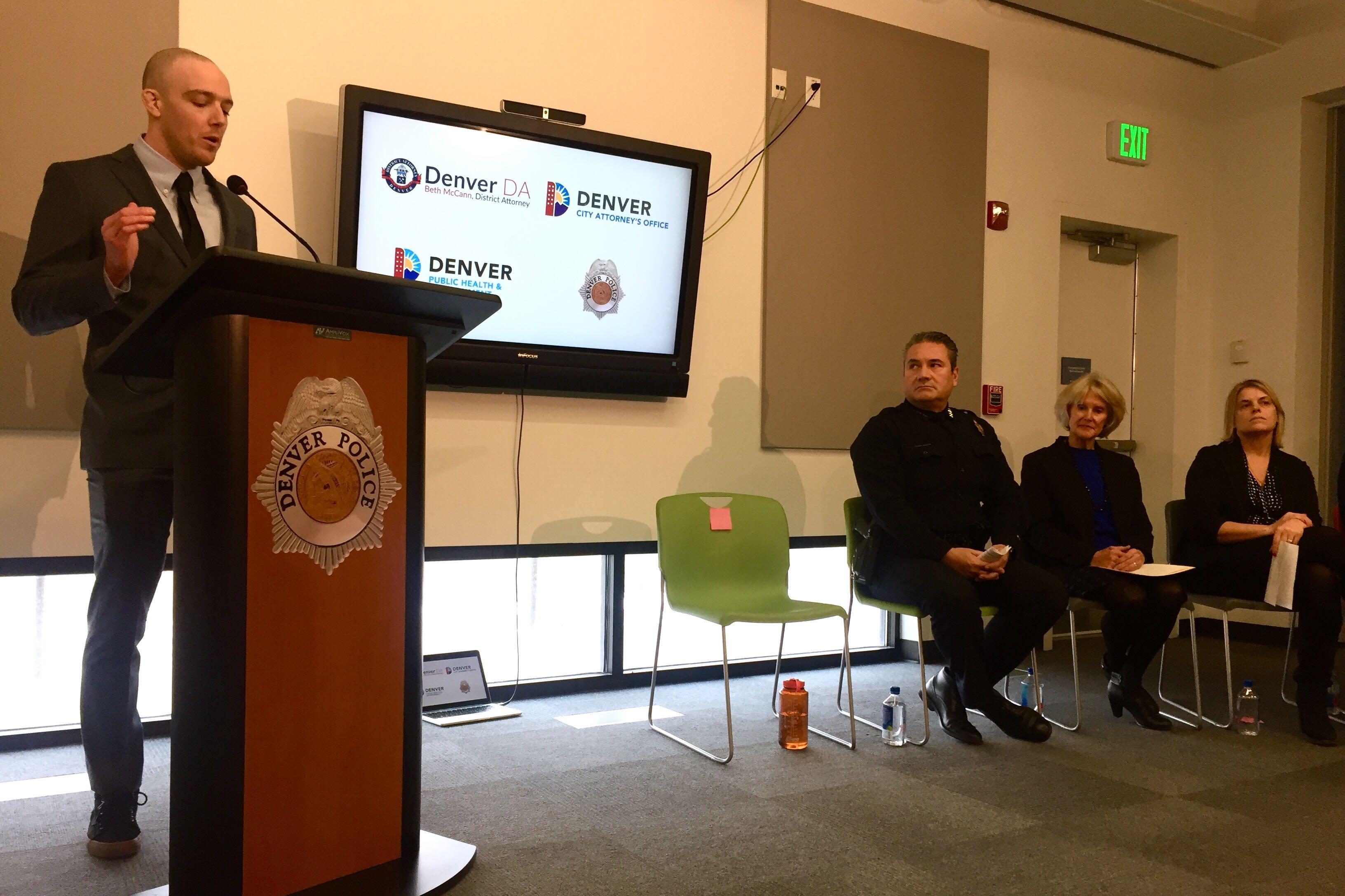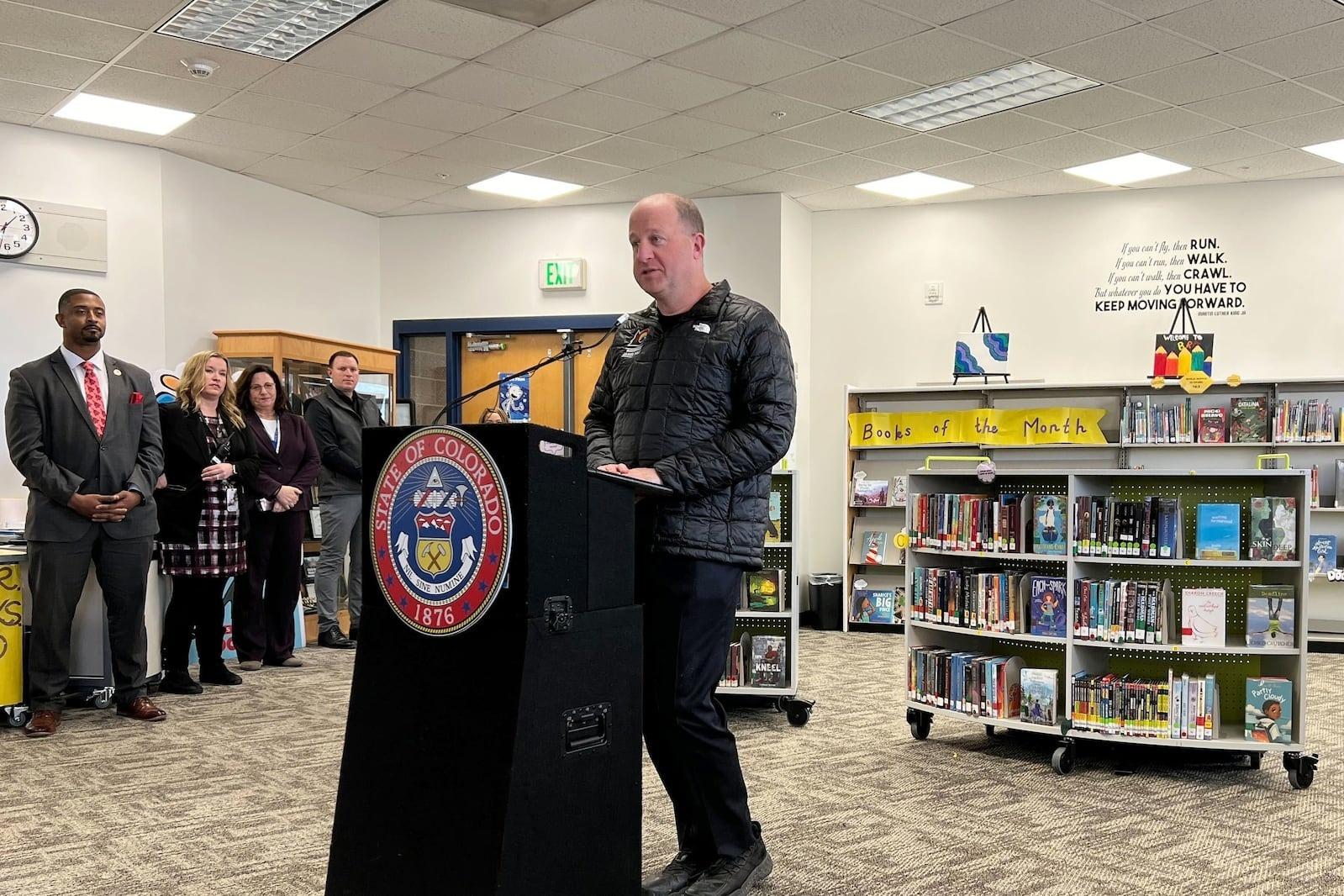

Denver is joining three other Colorado communities in launching a new pilot program to reduce repeat jail stays.
Low-level drug or prostitution offenders now have the option to enroll with a case manager in the program called the Law Enforcement Assisted Diversion, or LEAD, Program instead of going to jail.
These case managers can connect people to resources and services like housing, substance abuse treatment or vocational training.
“Too often folks with mental health issues, victims of trauma, folks with addiction issues find themselves in a revolving door of arrest, incarceration and repeat,” said Denver City Attorney Kristin Bronson at an event announcing the program Tuesday. “And yet we never seem to address the underlying issues of what led them to being arrested and incarcerated to begin with,” she said.
The Office of Behavioral Health Strategies will implement LEAD in three Denver police department districts over the next three years using more than $560,000 of state money from the Marijuana Tax Cash Fund.
Last year, the Colorado Department of Human Services awarded more than $6 million to Alamosa, Longmont, Pueblo County and Denver County to establish the program.
“LEAD gives Denver Police officers an innovative and effective way to address the untreated behavioral health needs of the most vulnerable members of our community,” said Kevin Kelly, LEAD program administrator with Denver’s Office of Behavioral Health Strategies.
Kelly said the program will save taxpayer money in the long run because public dollars won’t have to be spent jailing low-level offenders.
“Putting [people with drug addiction] in jail is a temporary fix, a Band-Aid approach,” said Denver Police Chief Paul Pazen. “By putting somebody in the city jail, in some areas, we are contributing to the problem. This is an opportunity to help people.”
By diverting someone to substance abuse treatment instead of jail, the individual can remain in their support system of housing, employment and family, Pazen said.
LEAD is a nationwide pre-booking diversion program created in Seattle. Kelly said Denver took a lot of guidance and structure from Seattle’s program.
But he said Denver is trying to make it as easy as it can to get people in the program. Other cities’ LEAD programs limit participation to people without criminal histories. Denver’s does not.
The city’s diversion program also differs from others in that an individual does not have to commit a crime to enroll. Police can refer anyone they think might benefit from LEAD support.
“We’re really empowering police officers to be problem solvers,” said Denver District Attorney Beth McCann.
The Office of Behavioral Health Strategies has partnered with two service providers: The Empowerment Program will work with women who experience incarceration, poverty, homelessness and HIV/AIDS infection. The ARTS, or Addiction Research and Treatment Services clinic out of the University of Colorado School of Medicine will handle addiction cases.
The program has already found transitional housing for its first enrollee, a mother, said Julie Kiehl, executive director of The Empowerment Program. ARTS will begin to receive referrals soon, once its contract with the city is finalized.
Kelly said the program’s success will be determined by the rate of how many people in the program re-offend.
LEAD will likely serve around 100 people this year, far fewer than the number of people who would benefit from the program, officials said.









